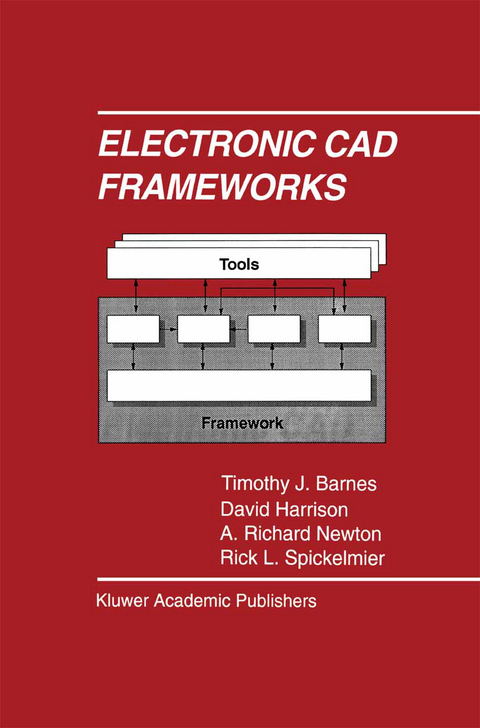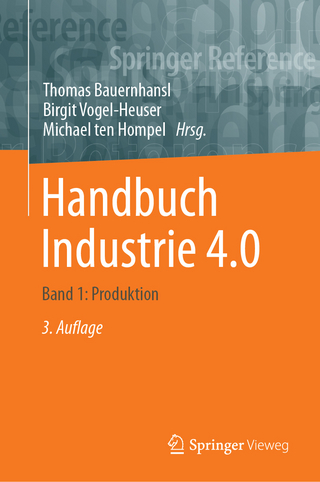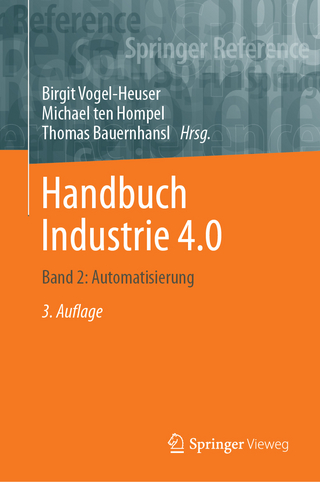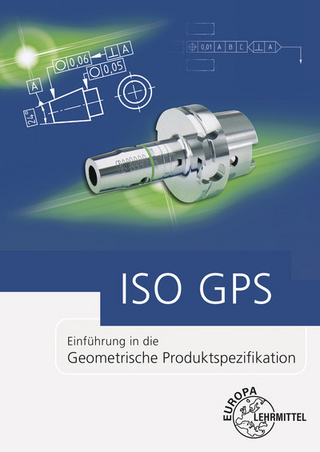
Electronic CAD Frameworks
Springer-Verlag New York Inc.
978-1-4613-6580-8 (ISBN)
When it comes to frameworks, the familiar story of the elephant and the six blind philosophers seems to apply. As each philoso pher encountered a separate part of the elephant, each pronounced his considered, but flawed judgement. One blind philosopher felt a leg and thought it a tree. Another felt the tail and thought he held a rope. Another felt the elephant's flank and thought he stood before a wall. We're supposed to learn about snap judgements from this alle gory, but its author might well have been describing design automation frameworks. For in the reality of today's product development requirements, a framework must be many things to many people. xiv CAD Frameworks: Integration Technology for CAD As the authors of this book note, framework design is an optimi zation problem. Somehow, it has to be both a superior rope for one and a tremendous tree for another. Somehow it needs to provide a standard environment for exploiting the full potential of computer-aided engineering tools. And, somehow, it has to make real such abstractions as interoperability and interchangeability. For years, we've talked about a framework as something that provides application-oriented services, just as an operating system provides system-level support. And for years, that simple statement has hid the tremendous complexity of actually providing those services.
1: Introdution.- 1.1 The Nature of a CAD Framework.- 1.2 The Evolution of CAD Frameworks.- 1.3 CAD Frameworks and Openness.- 1.4 The Rise of Commercial CAD Frameworks.- 1.5 The Impact of Object-Oriented Techniques.- 1.6 The Standardization of CAD Frameworks.- 1.7 Organization of the Book.- 2: Major Components of an Engineering Framework.- 2.1 Overview.- 2.2 Operating System Services.- 2.3 Tool Integration and Encapsulation.- 2.4 Design Management.- 3: Data Representation.- 3.1 Introduction.- 3.2 Databases and Data Structures.- 3.3 Approaches to CAD Databases.- 3.4 Representational Issues.- 3.5 The Nature of Engineering Design Information.- 3.6 Hierarchy.- 4: Data Management.- 4.1 Introduction.- 4.2 Conventional Database Approaches.- 4.3 Physical Versus Logical Data Management.- 4.4 Managing the History of a Design.- 4.5 Managing Multiple Users of the Data.- 4.6 Concurrency Control.- 4.7 Compatibility with Change.- 5: Tool Management.- 5.1 Introduction.- 5.2 Tool Characterization.- 5.3 Tool Control.- 5.4 Other Tool Management Functions.- 6: Design Flow Management.- 6.1 Introduction.- 6.2 Benefits.- 6.3 DFM Dependencies.- 6.4 Existing Approaches.- 6.5 Describing the Design Flow.- 6.6 The Design Flow Engine.- 6.7 Standardization and Design Flow Management.- 7: User Interfaces.- 7.1 Introduction.- 7.2 History of Design Automation User Interface Systems.- 7.3 Modern Framework User Interfaces.- 7.4 Future Directions for CAD User Interfaces.- 8: Extension Languages.- 8.1 Introduction.- 8.2 Commercial Extension Languages in CAD.- 8.3 Extension Languages Prototypes.- 8.4 Extension Languages Requirements.- 8.5 Design Issues for Extension Languages.- 8.6 General Applications of Extension Languages.- 8.7 Language-Based Design.- 8.8 Benefits of an Extension Language.- 8.9 Future Directions.- 9: Implementing a CAD Framework.- 9.1 Introduction.- 9.2 The CODEM Approach.- 9.3 Commercial Frameworks.- 10: The CAD Framework Initiative.- 10.1 Introduction.- 10.2 The Origins of CFI.- 10.3 Goals and Deliverables.- 10.4 The CFI Organization.- 10.5 Tangible and Intangible Benefits.- 10.6 Technical Activities.- 10.7 CFI in the Future.- 11: Summary.- 11.1 Acknowledgments.- References.
| Erscheint lt. Verlag | 9.10.2012 |
|---|---|
| Reihe/Serie | The Springer International Series in Engineering and Computer Science ; 185 |
| Zusatzinfo | XVII, 195 p. |
| Verlagsort | New York, NY |
| Sprache | englisch |
| Maße | 155 x 235 mm |
| Themenwelt | Informatik ► Weitere Themen ► CAD-Programme |
| Technik ► Elektrotechnik / Energietechnik | |
| ISBN-10 | 1-4613-6580-5 / 1461365805 |
| ISBN-13 | 978-1-4613-6580-8 / 9781461365808 |
| Zustand | Neuware |
| Informationen gemäß Produktsicherheitsverordnung (GPSR) | |
| Haben Sie eine Frage zum Produkt? |
aus dem Bereich


